The Standards Track focuses on key aspects of the standardization activities and programs on 5G and beyond related areas.
- Introduction: IEEE Future Network Initiative Standardization
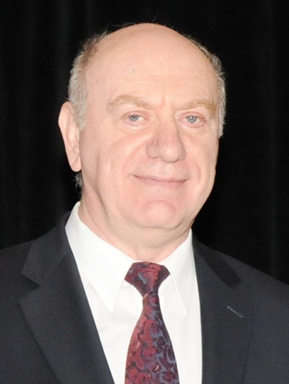 Alex Gelman, IEEE SA Vice President, Chair, IEEE COM/AccessCore-SC, IEEE Communications Society
Alex Gelman, IEEE SA Vice President, Chair, IEEE COM/AccessCore-SC, IEEE Communications Society
Bio: Alexander D. Gelman is a Life Fellow Member of IEEE. He received M.E. and Ph.D. (EE) from City University of New York. Presently he is CTO of NETovations Consulting Group. During 1998-2007 Alex worked as Chief Scientist at Panasonic Princeton Research Laboratory, managing research in Consumer communications and networking; during 1984-1998 at Bellcore, lastly as Director-Internet Access Architectures Research, leading research on networked multimedia and residential internet access technologies.
Alex co-founded and/or acquired for IEEE eight conferences and co-founded two IEEE publications; initiated ComSoc Standards Activities; initiated ComSoc Technical Committee and standardization in Power Line Communications; chaired the Technical Committee on Multimedia Communications; served four terms as ComSoc Vice President, a term as ComSoc CIO and was appointed to several ComSoc directorship positions.
Alex served on IEEE SA BoG and several terms on IEEE SA Standards Board, e.g. representing TAB; chaired TAB Ad Hoc Committee on Standards. Presently Alex is a member of IEEE TAB Committee on Standards and represents IEEE SA to TAB. Alex is a Chair of the IEEE COM/AccessCore Standards Committee and serves on ComSoc Standards Development and Standardization Programs Development Boards.
Alex is presently Vice President of IEEE Standards Association responsible for technical innovation and engagement of IEEE organizational unites.
Alex is a recipient of ComSoc Donald McLellan Meritorious Service Award, IEEE SA Corporate Standards Sponsor Award, and IEEE SA Standards Medallion. - KEYNOTE: IEEE 802.11 Standards: Wi-Fi 6 and beyond
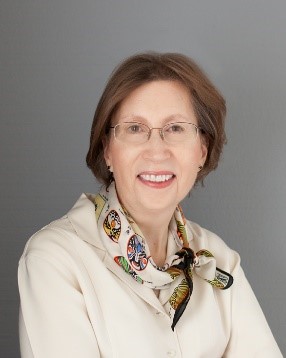 Dorothy Stanley, Head of Wireless Standards Strategy Aruba, a Hewlett Packard Enterprise company, IEEE 802.11 WG Chair and IEEE Standards Association Member
Dorothy Stanley, Head of Wireless Standards Strategy Aruba, a Hewlett Packard Enterprise company, IEEE 802.11 WG Chair and IEEE Standards Association Member
Bio: Dorothy has been involved in wireless LAN product strategy and standards activities since 2000. She has participated in standards development and industry organizations to develop and promote IEEE 802.11 and Wi-Fi technologies. Within the IEEE, she currently serves as IEEE 802.11 Working Group Chair (since March 2018). She has served as IEEE 802.11 Working Group Vice Chair (4 years), and has chaired the IEEE 802.11v Task Group (Wireless Network Management), IEEE 802.11REVmb Task Group (IEEE Std 802.11™-2012), IEEE 802.11REVmc Task Group (IEEE Std 802.11™-2016) and is currently the IEEE 802.11md Task Group chair. Within the IEEE Standards Association she is a member of the IEEE Standards Association Standards Board and Chair of the IEEE SA New Standards Committee. Dorothy has contributed to and led initiatives in IEEE 802.11, the Internet Engineering Task Force (IETF), Wi-Fi Alliance, and the Wireless Broadband Alliance, leading and chairing numerous subgroups. She served as the Liaison officer from IEEE 802.11 to the IETF for many years, and now is Co-chair of the IAB/IEEE 802 Coordination Committee. Before joining Aruba Networks (2005), Dorothy was a Distinguished Member of Technical Staff at Agere Systems/Lucent Technologies/AT&T Bell Labs. Her responsibilities included system architecture, software development, and capacity planning and performance analysis for Digital Switching and Fixed Wireless Systems. - Frugal 5G and beyond
 Abhay Karandikar, IIT Bombay
Abhay Karandikar, IIT Bombay
Bio: Prof Abhay Karandikar is currently the Director, Indian Institute of Technology (IIT) Kanpur, one of the premier technical institutes of India. Prof Karandikar is also Member (Part-Time) of Telecom Regulatory Authority of India (TRAI). Before joining IIT Kanpur as the Director in April 2018, he served as Institute Chair Professor in the Department of Electrical Engineering at Indian Institute of Technology (IIT) Bombay. He spearheaded a national effort in setting up Telecom Standards Development Society of India (TSDSI), India’s standards body for telecom with participation of all stakeholders. Prof Karandikar was the founding member and former Chairman of TSDSI. He serves on the board of several companies and has founded and mentored start-ups in telecom and networking. He was member of High Level Forum on 5G setup by the Government of India and Chaired the 5G Spectrum Policy Task Force. Prof Karandikar has several patents issued and pending, contributions to IEEE, 3GPP standards, contributed chapters in books and large number of papers in international journals and conferences to his credit. - Architectural Functional Framework for Smart Cities
 Narendra Mangra, Globenet
Narendra Mangra, Globenet
Bio: Narendra Mangra is a wireless mobility advisor at GlobeNet. His experience extends across the wireless mobility ecosystem and mobile network deployment lifecycle within the industry, academia, and government sectors. He is the IEEE Future Networks International Network Generations Roadmap (INGR) Co Chair, IEEE INGR Applications and Services Working Group Co-Chair, and IEEE Future Networks Summer School Education Chair. The IEEE initiatives include developing a smart cities roadmap framework, and holding local recurring industry focused educational sessions for Young Professionals. Narendra is also an Adjunct Professor at the Volgeneau School of Engineering at the George Mason University. Narendra has extensive consulting experience in the mobile satellite and cellular communications, public safety communications, information technology, higher education, and federal & local government sectors. His business and technical consulting experience spans the end-to-end mobile ecosystem and network deployment life cycle and includes strategy development, procurements including solicitation development, spectrum management, RAN network planning and optimization, mobile terrestrial and LEO satellite network deployments, operations & business support systems, international and prepaid roaming, and project management. He has an MBA, MSEE/BSEE and a PMP Certificate. His current interests include the 5G ecosystem, Smart Cities and related sustainable interconnected ecosystems. - Building Your Smart City with the IEEE P2784 Smart City Planning and Technology Guide
 Jim Frazer, ARC Advisory Group
Jim Frazer, ARC Advisory Group
Bio: Jim leads the Infrastructure and Smart Cities consulting team at ARC Advisory. Jim has authored many lighting, transportation and Smart City project specifications for end users as well as national and international standards for the Institute of Electrical and Electronic Engineers (IEEE), Illuminating Engineering Society (IES), the National Electrical Manufacturers Association (NEMA) and the United States Department of Transportation.
EDUCATION: MBA from Rider University, BS Mechanical Engineering from Rutgers University. - Virtualized Ecosystems: 5G and Beyond
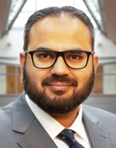 Mohammad Asad Rehman Chaudry, Soptimizer
Mohammad Asad Rehman Chaudry, Soptimizer
Bio: Mohammad Asad Chaudhry holds a PhD in Electrical & Computer Engineering from Texas A&M University, and an MBA from University of Toronto-Rotman School of Management. He is a seasoned professional and thought-leader spearheading multi-disciplinary projects in Digital Disruption and Future-Tech.
Dr. Chaudhry Chairs IEEE Working Group for the Standards for Software-Defined and Virtualized Ecosystems Performance. He is a cofounder of two companies Soptimizer, and Karbonbloc. He also serves on the Advisory Board of FBIT at Ontario Tech. He previously held industrial and faculty positions at IBM Research, the Hamilton Institute, University of Toronto, DARPA System F6, and the University of Calgary. He received several honors and accolades including a Fulbright Fellowship, and Peter. F Drucker Effective Executive Scholarship. - IEEE P1930.1 – SDN based Architecture for Multi-RAT RAN
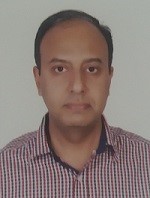 Pranav Jha, IIT Bombay
Pranav Jha, IIT Bombay
Bio: Pranav Jha has more than 20 years of research and development experience in communication and networking technologies with expertise in network architectures, communication protocols and resource management algorithms. He is an active participant in the development of technical standards in the areas of fifth generation mobile communication networks (5G) and SDN and chairs two IEEE working groups, namely “SDN based Middleware for Control and Management of Networks”, IEEE P1930.1 and “Frugal 5G Networks”, IEEE P2061. He is currently working with IIT Bombay, Mumbai, India as a Scientist where he focusses on research programs
under the broad umbrella of wireless communication networks, with emphasis on SDN and NFV based architectures for Wireless Networks, Public Safety Communication Networks and Rural Broadband Communication. Pranav has multiple patents issued and pending, contribution to IEEE and 3GPP standards and research papers in international conferences in these areas. - Harmonization of 5G Standards for E2E Architectures and Multi-Layer AI Frameworks for Autonomic Management & Control (AMC)
 Ranganai Chaparadza, Vodaphone
Ranganai Chaparadza, Vodaphone
Bio: Ranganai Chaparadza: Dr.-Ing./PhD, is a Senior Altran CapGemini Technical & Technology Consultant for Vodafone (and other Telecom Operators as well) and Solutions Design Architect. He actively supports Network Operators in various aspects: Vendor Management and Solutions Selections on SDN/NFV and E2E Service Assurance Solutions for Telco Networks and Data Center (DC) Network Services; Business Development with Emerging ICT Technologies and Future Networks; Standardization Expert (ETSI, BBF, ITU-T, NGMN, TMF, 3GPP, IEEE, IETF, ONF, MEF); R&D; RFIs/RFQs/RFPs Processes and Solution Supplier Selection; SDN/NFV TCO (Total Cost of Ownership); Building Optimal Commercial Models for Transport SDN and NFV; Procurement Transformation in the Era of SDN/NFV; Products Innovation with SDN, NFV and AMC (Autonomic Management & Control) for Network Automation using ETSI GANA oriented Standards; ETSI 5G PoC on E2E Closed-Loop (Autonomic) Service Assurance and E2E Autonomic Security Assurance for 5G Network Slices. He is also contributor to IEEE Future Networks Standardization Building Blocks Roadmap WG and Systems Optimization WG. - Overview of 3GPP’s service layer standardization (SA6)
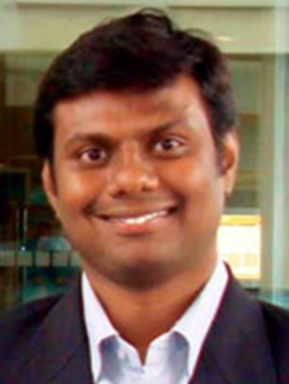 Niranth Amogh, Huawei
Niranth Amogh, Huawei
Bio: Niranth Amogh is the Principal Researcher at the Huawei India R&D Center at Bengaluru. He is responsible for the Wireless Networks Research and Standards within the organization. His research areas include 5G vertical industry applications and platforms for Mission Critical Communications, V2X, UAV communications, M2M/IoT, Edge Computing, NGSON and API frameworks.
He is an active member of global (3GPP, IEEE, ITU) and regional standards bodies (TSDSI, TEC, BIS) and is leading standards topics in verticals domain.
At 3GPP, he is an active Contributor and Rapporteur for several technical standards (Application enabler layer for V2X, UAS, Common Architecture for Mission Critical Services, Mission Critical Video) developed by SA6 WG.
At IEEE, he serves as the Chair of the IEEE Bangalore Section Standards Special Interest Group and has previously held positions of officer and board member of the IEEE Communications Society Standards Development Board; Principal Editor of P1903 (NGSON) standardization working group; Co-Chair for Standardization Committee of IEEE SDN Initiative. - Software-Defined Quantum Communication
 Stephen F Bush, GE Research
Stephen F Bush, GE Research
Bio: Stephen F. Bush is a Senior Scientist at GE Research. He taught Quantum Computation and Communication at Rensselaer Polytechnic Institute and is chairing IEEE P1913, Software-Defined Quantum Communication. He received a Gold Cup Trophy Award from DARPA for his work in fault tolerant networking research. He is the author of “Smart Grid: Communication-Enabled Intelligence for the Electric Power Grid” (Wiley – IEEE, 2014) and “Nanoscale Communication Networks” (Norwood, MA: Artech House, 2010). He coauthored a book on active networks, entitled “Active Networks and Active Network Management: A Proactive Management Framework” (New York, NY: Kluwer Academic/Plenum Publishers, 2001). Dr. Bush is past chair of the IEEE Emerging Technical Subcommittee on Nanoscale, Molecular, and Quantum Networking and chaired the IEEE 1906.1 standards working group on nanoscale communication networks. He is currently chair of a related project, IEEE 1906.1.1 Draft Standard Data Model for Nanoscale Communication Systems. Dr. Bush is an IEEE Distinguished Lecturer on the smart grid and nanoscale communication networks. Stephen F. Bush received the B.S. degree in electrical and computer engineering from Carnegie Mellon University, M.S. degree in computer science from Cleveland State University, and Ph.D. degree from the University of Kansas. - Satellites and 5G Converged Networks to support Vehicular Multimedia Services
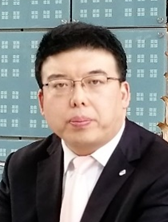 Jun Li, Chairman of ITU-T SG16 FGVM, Deputy Secretary General of TIAA
Jun Li, Chairman of ITU-T SG16 FGVM, Deputy Secretary General of TIAA
Bio: Mr. Jun Li, he is Chairman of ITU-T SG16 Focus Group on Vehicular Multimedia and Deputy Secretary General of TIAA (Telematics industry Application Alliance), Senior Engineer.
He has over 20 years of experience in the sectors of Mobile and Satellite, has a deep understanding of the mobile communication and satellite broadcasting technology, and had participated and chaired the TD-LTE industrialization and internationalization, mainly at present responsible for “Internet plus” satellite mobile broadcasting network integration terminal standards and industrialization.
He serves as Deputy Secretary General of TIAA, is also the leader of Vehicular Multimedia Workgroup of TIAA, take charge in construction of Chinese Vehicle Digital Multimedia Eco-system.
Organizers

Niranth Amogh |

Gustavo Giannattasi |

Mehmet Ulema |
